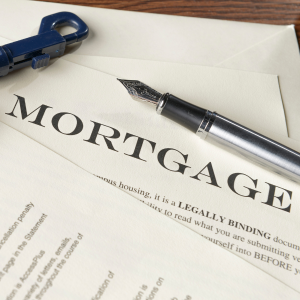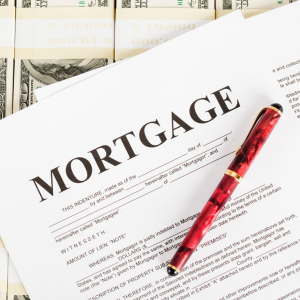
Selling a house with a mortgage in Baltimore, MD, is simple. At CR of Maryland I LLC, we guide you through the process, pay off your loan at closing, and ensure you keep the remaining proceeds.
Understanding the Basics of Selling a Mortgaged Home
It can be scary to sell a house that already has a mortgage, but knowing how the process works can make it less scary. If you sell a house in Maryland that still has a mortgage, you need to take care of several important things to make sure the process goes smoothly. It’s important to know how the mortgage affects the sale of your property and to figure out how much equity you have in it. If you know where you stand financially and how mortgages affect the sale, you’ll be better able to negotiate the real estate market and get the most money from the sale.
How Mortgages Affect the Home Sale Process
When it comes to selling a home with a mortgage in Maryland, there are several crucial steps that are shaped by your current mortgage situation. When you’re ready to sell, the first important step is to review the balance on your mortgage. The equilibrium plays a crucial role in the selling process, as it dictates the extent to which you can leverage your home equity. Lenders usually issue a payoff statement that outlines your current loan balance, the interest that will accumulate up until the payoff date, and any applicable fees for early repayment. Grasping these specifics is crucial to guarantee that the sale not only addresses the mortgage but also provides you with a profit.
The real estate landscape, particularly in regions such as Maryland, can experience notable fluctuations; thus, assessing your market value in relation to your loan and equity is essential. The condition of the market influences your asking price as well as the final amount you receive from the sale. For example, when the value of your property surpasses your mortgage balance, you have positive equity, which is advantageous for selling. In the event that the market value of the house falls below the amount you owe, you could encounter a short sale scenario. This situation brings with it extra complexities and requires approval from the lender.
Additionally, the type of mortgage you have, whether a fixed-rate or an adjustable-rate loan, can influence the timing of a sale. A fixed-rate mortgage provides predictable payment amounts, while the fluctuations of an adjustable-rate mortgage might prompt you to sell your home sooner than expected. To navigate these complexities effectively, consider working with a knowledgeable real estate professional in Maryland who can help you sell your home for cash in Baltimore and nearby cities. Their expertise in the local market and understanding of mortgage details can help you set a competitive price that aligns with your financial goals.
Finally, be sure to consider the possible expenses tied to the title transfer and associated legal matters, which are typically addressed during the closing process. Collaborating closely with your lender and real estate professional will help reduce unexpected issues and clarify the complexities of the reverse mortgage process that influence the sale, leading to a more seamless and financially sound transaction.
Determining Your Home’s Equity Before Sale
If you’re thinking about selling your home with a mortgage, it’s important to know how much equity you have in it. To figure out your equity, take the current market value of your property and subtract the amount you still owe on your mortgage. This will give you the amount of your home that you really own. Understanding this number is very important since it affects how much money you make from the sale.
Your home in Maryland is worth $300,000 and has a mortgage balance of $200,000. This means you have $100,000 in equity. Knowing how much equity you have in your property ahead of time will help you plan how to sell it. If you have positive equity, you could walk away with a lot of money after the sale. This money might be used to pay off the mortgage and make future investments or down payments on a new property. If you have negative equity, or are “underwater,” you may need to try something else, such as waiting for the market to change or negotiating with your lender for a short sale.
Getting an accurate appraisal of your house in the current market from a professional appraiser will help you better appreciate your equity. Real estate brokers in Maryland know a lot about trends in neighborhoods and can help you set a fair price for a speedy and profitable transaction. In addition, equity affects not only the sale right now but also your long-term financial health because it might affect your credit and ability to get future loans.
You should also think about any upgrades that have been made to the property that could make it worth more than just numbers. Upgrades or renovations usually raise the equity value, which means you can ask for more money and have more people interested in buying. Make sure to weigh your choices between making improvements to make the market more appealing and saving resources to get the most out of your net gain.
Finally, it’s very important to talk to your lender clearly about your equity. They can change the sums owed and tell you about any fees or penalties that might come with selling. This careful balance of equity and mortgage factors lets people make smart, confident choices, which leads to a successful home sale process in Maryland’s fast-changing market.
Preparing Your Home for the Market

Preparing your property for sale on the real estate market means more than just painting it again. In Baltimore, MD, there are some things you can do to make your house more appealing and make sure it sells quickly. Making a good listing agreement and working with a real estate professional are two very important stages that can have a big impact on how easy it is to sell your house. Knowing these parts makes things clearer and helps you sell a mortgaged home quickly while getting the most money for it.
Prepare your home by decluttering, making minor repairs, and enhancing curb appeal. At CR of Maryland I LLC, we buy houses in Frederick and the surrounding areas and offer a fast, stress-free sale.
Creating an Effective Listing Agreement
An effective listing agreement is the core of the selling process, defining the conditions between you and your broker for how your home will be marketed and sold. The agreement should explicitly describe the roles of the real estate professionals involved, ensuring that every facet of the transaction serves your best interests. In Baltimore’s competitive real estate market, where property value and financing information are critical, a well-drafted listing agreement can mean the difference between a rapid sale and a longer market presence.
Given the unique complications of selling a home with an existing mortgage, it’s critical to include terms in the contract that reflect any peculiarities related to the valuation of your property vs the mortgage balance. This documentation should specify how proceeds will be handled when the mortgage is settled, especially if you anticipate a surplus or are dealing with equity implications. The listing agreement serves as a guide through the contractual landscape of real estate, ensuring that both seller and expert expectations are met.
Furthermore, creating the appropriate agreement necessitates an awareness of Baltimore’s property rules, which can have a big impact on how you list your home. Details such as the listing time, brokerage fees, and rules governing open houses, showings, and communication procedures should be made clear. This clarity helps to avoid disagreements during the sale process and protects your interests right up until the title is transferred. Understanding these components enables easy navigation through the countless real estate listings and competitive expert services.
A complete listing agreement produced by a qualified expert also gives you an advantage in talks with potential purchasers because they know the procedure is transparent. It is critical to work closely with your real estate professionals to ensure that the listing agreement is tailored to your specific house and financial circumstances. This not only establishes confidence but also provides a solid foundation for what could be the most important financial transaction involving your Baltimore property.
Collaborating with a Real Estate Professional
A skilled real estate professional can simplify the process of selling a Baltimore mortgaged home. These experts know local market trends, which can boost your property’s appeal to purchasers. An expert who understands mortgage implications can help you price your house competitively based on market value and mortgage balance.
A good expert does more than list your home. They excel at navigating the Baltimore property market, valuing properties, and creating marketing plans. Collaboration makes your listing stand out among other real estate listings, attracting the ideal buyers. Experts use internet listings, staging, and virtual tours to promote your home.
Moreover, real estate brokers are crucial in negotiations. Their talents can help sellers and buyers align expectations and ensure that offers reflect your home’s genuine value, including mortgage commitments, in Baltimore, where housing values and buyer demand change quickly. This is especially important. A good expert manages offers, negotiations, and contracts without missing mortgage sale contingencies, protecting your interests.
Effective teamwork requires openness and communication. Open communication with your expert helps you change your sales approach to changing market conditions and mortgage impacts. Experts gives property viewing comments to help you change your strategy based on prospective buyers’ opinions. They can also coordinate open homes, handle questions, and provide crucial sale updates.
Work with a Baltimore real estate broker to speed the sale of your mortgage-backed house, reduce stress, and ensure professional service. This cooperation maximizes profits while meeting legal and market criteria.
Navigating the Sale Process in Maryland

A successful Maryland real estate deal depends on the seller knowing how to handle the complicated steps needed to sell their home without affecting their finances. Understanding the details of the finishing process and being familiar with the local real estate laws are very important. Before you can successfully handle Maryland’s unique housing market, you need to carefully think about every single aspect. Working closely with a good real estate professional or lawyer and making sure you follow all the rules can help the sale go more smoothly. Knowing what to expect at every stage of the sale process is important for getting the best deal and avoiding common problems that come up with selling a mortgage-backed home in Baltimore.
Unique Aspects of Maryland Real Estate Law
Maryland’s real estate law has a number of rules and requirements that sellers need to know about in order to make the sale go smoothly. One strange thing about this is the disclosure rule, which says that sellers must tell buyers about any major problems with the property that they know about. This rule protects buyers by making sure they know everything about the property’s condition before they acquire it. Not telling the buyer about these things can get you in trouble with the law, which could slow down or even stop the sale process.
The state also requires sellers to pay the Property Records Improvement Fund, a minor fee that goes toward keeping property records up to date. This fee must be paid at the closing. These legal requirements show how complicated real estate deals in Maryland may be and how important it is to fully understand the regulations in your area.
When you buy or sell real estate in Maryland, you also have to deal with complicated title insurance plans. This insurance is very important because it protects both the buyer and the lender from any title problems that may come up after the sale. Since the title’s clear status is often a condition of the sale contract, knowing how to get this insurance will help make sure the transaction goes smoothly.
The state requires a “good funds law” along with title insurance. This law makes sure that the money transmitted at closing is safe and trustworthy, which lowers the danger of fraud or failed checks. Another important thing to think about is how Maryland handles property taxes. At closing, the buyer and seller split the taxes based on when the ownership changes hands. This prorating can change the final closing costs, thus it needs to be done carefully to avoid any mistakes in the numbers.
Sellers also need to know about the state’s Transfer and Recordation Taxes, which are fees that are charged when the property changes hands. To be able to accurately predict the costs, it is important to know these tax requirements and how to figure them out. In the end, knowing about these special legal issues gives sellers the confidence and knowledge they need to sell their homes legally and confidently in Maryland.
Talking to a knowledgeable real estate lawyer who knows these regulations better can help make sure that the transaction goes well and lower the dangers that come with buying a house with a mortgage. Their knowledge sets apart a well-run home sale from a difficult legal battle, showing how important Maryland’s specific real estate regulations are to every successful property deal.
What Happens During the Closing Process in Maryland?
The closing process in Maryland marks the final step in your home sale journey, as legal ownership shifts from the seller to the buyer. This essential stage includes several steps and requires meticulous coordination to guarantee that all elements conform to Maryland real estate regulations and the details of the mortgage associated with the property.
The process generally includes a closing expert, often a title company or attorney, who oversees all paperwork, making sure that all documents and funds are properly organized. A crucial step in the closing process is conducting a final title review to confirm that the property is clear of any liens or claims. This step is crucial, as any inconsistencies could impede the sales process. In conjunction with this review, the buyer conducts a final walkthrough, providing them the opportunity to inspect the property prior to completing the purchase. It’s essential to verify that the repairs previously agreed upon during negotiations between the buyer and seller have been successfully completed. Any problems identified during the walkthrough may lead to delays or complications in the closing process.
In Maryland, it is essential for both the seller and the buyer to be present to sign all required documents, unless they have previously assigned power of attorney to a designated representative. This collection of documents encompasses deeds, affidavits, a settlement statement that outlines financial responsibilities, and a mortgage closing disclosure that details the specifics of the loan. Every document plays a crucial part in legally finalizing the transaction and validating all terms and conditions of the sale and loan agreement.
In addition to documentation, this phase also addresses the financial considerations. The buyer submits the final payment to the closing expert, who then subtracts any outstanding obligations, such as the seller’s current mortgage and taxes. Once these obligations are settled, the remaining funds will be directed to the seller. The expert guarantees that all funds are transferred securely, adhering to Maryland’s “good funds law.” This law mandates that all payments at closing must be made with certified, verified funds to safeguard against fraud.
Additionally, in Maryland, the closing costs are usually divided between the buyer and seller and generally encompass fees for title insurance, property transfer taxes, and recording fees for updates to public records. A thorough grasp of these costs is essential, as they can greatly influence the net proceeds from the sale.
The expertise of a skilled real estate professional or attorney can prove essential in this journey, ensuring that every detail adheres to legal standards and helping to avoid potential conflicts down the line. In summary, grasping these comprehensive steps enables you to foresee what lies ahead and get ready appropriately. Understanding the unique processes in Maryland, backed by knowledgeable experts, facilitates a seamless property ownership transition and ensures all home-selling requirements are met effectively.
At closing, you sign documents, the lender verifies requirements, and you pay costs. Once recorded, you take ownership and get your keys. For more help, Contact Us at CR of Maryland I LLC.
Financial Aspects of Selling a Mortgaged Estate

If you’re selling a house that still has a debt on it, it’s important to know how the money works. The first thing you need to do is find out exactly how much you still owe on your mortgage. This number has a direct effect on how you sell your home and how much money you get from the sale. To get more information, ask your lender for a payoff account. It shows how much of the loan is still owed, how much interest will be added until the sale is finalized, and if there are any fees for paying it off early. This payoff number is important for planning your sale so that the sale price covers all of your debts and gives you the most money possible.
Real estate markets can go through changes that can affect your sale price and, in the end, your finances. If the market value of your home is higher than your mortgage amount, you have positive equity. This means that you will get more money when you sell your home. On the other hand, if the house’s value is less than the debt amount, you might have to do a short sale, which could make the selling process more difficult. Working with a skilled real estate professional can help you handle the negotiations and limit your possible losses in this situation.
The final price of your land isn’t just enough to pay off your mortgage. It’s very important to think about extra costs like title transfer fees and agency commissions. A good real estate professional who knows the Baltimore, MD market well can help you set the right price for your home, taking into account all the financial details that come up with a mortgage. Also, knowing about possible costs helps you correctly predict how much the transaction will cost, so there aren’t many unpleasant financial surprises during the deal.
Think about more than just the direct effects of your debt. If you want to use the money from the sale to buy another home or start a business of some other kind, you need to have a good idea of your current financial situation. You should think about any changes you’ve made to your home that could raise its value on the market and help you get more money. You can get the most money from the sale of your Baltimore mortgage-backed home by carefully considering the effects of the mortgage as part of your overall financial plans. This will put you in a good financial position and allow you to make smart investments in the future.
Looking to sell your home quickly? Avoid the hassle of costly fixes and drawn-out listings. CR of Maryland I LLC provides fair cash offers and handles everything from start to finish. Have questions, or are you ready to start? Call (443) 278-2743 today for a no-obligation offer.
FAQs:
Can You Sell a House in Baltimore, MD, With an Existing Mortgage?
Yes, you can sell a house in Baltimore, MD that still carries a mortgage. Understanding the payoff amount and home equity is essential. Working with a knowledgeable real estate professional can simplify the process.
How Does Mortgage Payoff Affect Selling a House?
The payoff amount on your mortgage directly influences the sale as it determines your equity and the proceeds you retain. Request a payoff statement from your lender to understand your outstanding balance and potential penalties.
What Role Does Equity Play in Selling a Home?
Equity is calculated by subtracting your mortgage balance from your home’s market value. Positive equity results in more proceeds after sale, while negative equity may require a short sale, needing lender approval.
What Are the Unique Real Estate Law Requirements in Maryland?
Maryland laws require sellers to disclose property defects and manage title insurance carefully. Selling a property involves understanding transfer taxes and compliant documentation at closing.
Why is It Important to Work With a Real Estate Professional in Baltimore?
A knowledgeable real estate professional understands local market trends, mortgage implications, and strategies for pricing your home competitively. They also assist with the legal intricacies and negotiation process.
Helpful Baltimore Blog Articles
- Selling An Inherited House In Baltimore, MD
- Does a Seller Pay Closing Costs in Baltimore, MD?
- Selling a House With a Mortgage in Baltimore, MD
- Selling a Home with Unpermitted Work in Baltimore, MD
- Sell a House with a Lien in Baltimore, MD
- Selling a House to a Family Member in Baltimore, MD
- How to Sell a House with Title Issues in Baltimore, MD
- How to Divide an Inherited House with Sibling in Baltimore, MD
- Selling Home with Reverse Mortgage in Baltimore, MD
- Sell a House As-Is Without Inspection in Baltimore, MD
- How Long Can Seller Stay in House After Closing in Baltimore, MD
